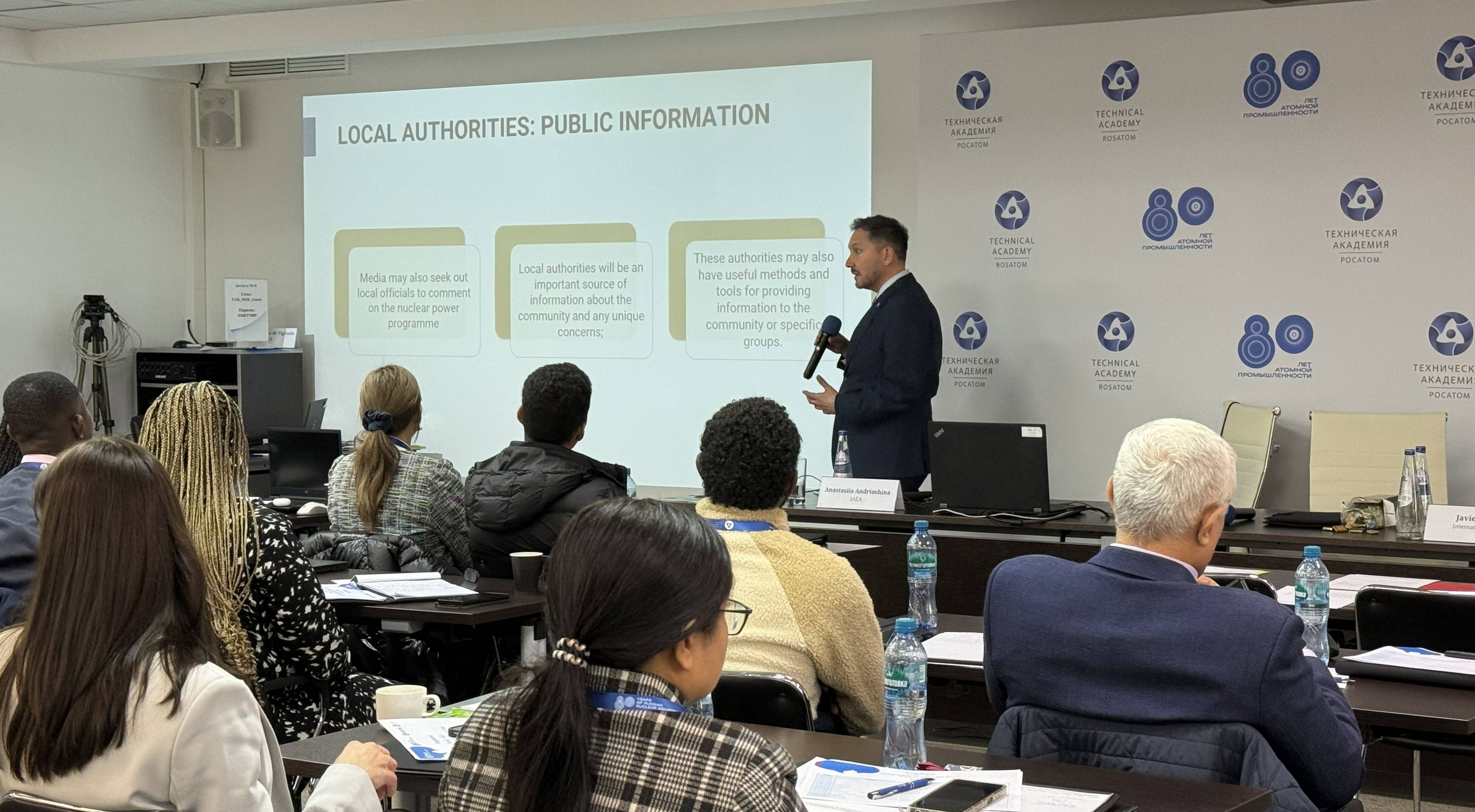Two international schools, jointly organized by the IAEA and the Russian Federation, have concluded in Moscow, marking another milestone in the IAEA’s capacity building efforts.
Hosted at the Moscow branch of the Rosatom Technical Academy, the schools brought together 60 participants from 26 countries. The events highlighted a key message: the success of nuclear power projects depends not only on advanced technology, but also on strong leadership and the trust of communities.
“To develop and run a nuclear programme, we need more than technology – we need people,” said Mikhail Chudakov, IAEA Deputy Director General and Head of the Department of Nuclear Energy. “Skilled professionals are the ones who plan, operate, and engage with communities. This is why capacity building is so important.”
As the world faces challenges from climate change, energy security and growing electricity demand, nuclear energy is now recognized as part of the solution. The IAEA’s latest projections show that global nuclear capacity could rise from about 377 GW today to nearly 1000 GW by 2050 in the high case scenario. Meeting this goal will require not only technology, but also leaders who combine technical expertise with social responsibility, ensuring that projects are managed effectively and trusted by the communities they serve.
